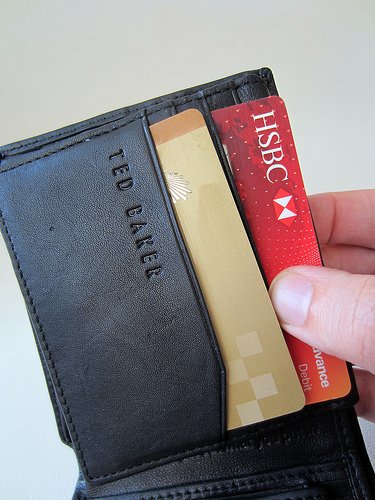How students can protect their credit score

Many of us who graduated several years ago are only just beginning to realise the impact of our financial behaviour at university. The vast majority of students start a degree without the experience of managing their own finances and with socialising, lectures and essay-cramming on the agenda, it’s all too easy to get into debt and bad habits. Missing bill payments, overdraft charges and credit card misuse can leave students finishing a degree with bad credit scores and not much idea of how to correct the problem.
Credit scores
Having a bad credit score can make it harder to get credit in the future (loans or credit cards) and determine whether you get that new mobile or rent a flat. Mobile phone providers and estate agents will often do a credit check before they approve a client. Now that we’ve established that a credit score is important, the first step to tackle the problem is working out what affects your credit score. The vast majority (35%) of it is based on payment history which can be damaged by unauthorised overdraft charges, missed payments, and bounced cheques among other things. 30% is based on the amount of debt a person has; in the case of students who’ve recently graduated it’s relatively high compared to average wage and age and many will have maxed out their student account overdrafts. 15% is based on the amount of time you’ve had credit and new applications for credit and type of credit contribute 10% each. To find out more on how to run a credit check, follow the link.
Student Loans
Being in debt by having a large student loan does not equate to having a bad credit score. Borrowing money and paying it back as per any credit agreement is the best way to build a good credit score in the first place. For example, if you use your entire £1500 student overdraft but pay it back gradually after graduation, you’ll improve your rating. Loans can harm your credit score if a payment is missed or the student loan lender doesn’t report your payment history. Thankfully in the UK, the Student Loans Company will automatically take your repayments from your income when you earn above a certain threshold. Additionally, all current student loans will be written off after 30 years. However, it was proposed in 2012 that graduates would be penalised for repaying their loans earlier than necessary.
Keep an eye on it
Keep an eye on your finances and make sure you’re repaying your student loan or making at the least the minimum repayment on your credit card. You should be checking on your credit score at regular intervals throughout your life to make sure any information about you is correct, as mistakes can be made, and that your credit score isn’t being negatively affected by a debt that you overlooked. Remember, contrary to some reports, checking your credit score doesn’t damage your rating.
Photo Credit: 401-2013
Category: Deals, Featured, Student News






